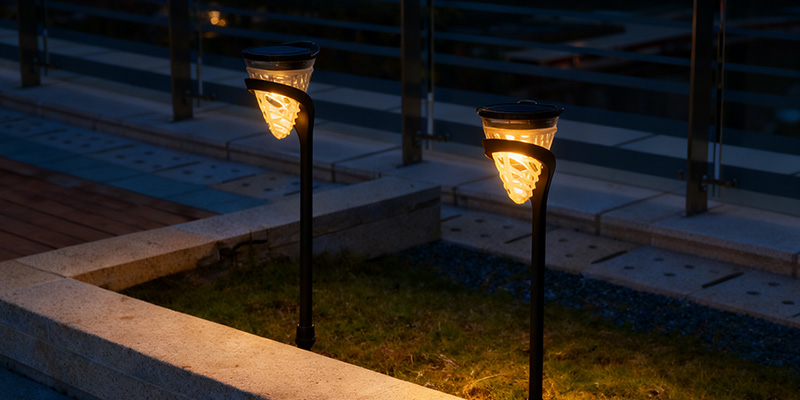What is a good quality solar light
Many people struggle with choosing solar lights: Why do some stop working after just a few days, while others completely shut down on rainy days? Some claim "extra-long battery life" but frequently experience power outages. Others short-circuit after just a light rain. These issues all point to one key question: Is the solar lantern you've chosen truly high-quality? Today, we'll break down the criteria for a high-quality solar lantern, starting with its core features and addressing practical scenarios, to help you avoid purchasing pitfalls.
1.The Core of a High-Quality Solar lights: The "Hard Performance" of the Solar Panel and the Lantern
To determine the quality of a solar lantern, we must first examine its "heart"—the characteristics of the solar panel—and the durability of the lantern itself. This can be assessed from the following perspectives:
Lamp Material: The "Basic Defense" That Determines Lifespan
High-quality solar lanterns are made of materials that are anything but cheap, plasticky. Mainstream, high-quality products are made of ABS engineering plastic or aluminum alloy. ABS engineering plastic is impact-resistant, heat-resistant, and age-resistant, making it less susceptible to cracking and fading even after prolonged exposure to sunlight, wind, and rain. Aluminum alloy offers superior heat dissipation and corrosion resistance, making it particularly suitable for cold regions or humid coastal environments. It effectively prevents circuit failures caused by material aging and extends the overall lifespan of the lamp.
2. Waterproofing: An Essential Skill for Outdoor Use
Outdoor solar lanterns are subject to daily exposure to rain and dew, and their waterproofing rating directly determines their survivability. High-quality solar lanterns must have a waterproofing rating of IP65 or higher. "IP6" indicates complete dustproofing, preventing dust from entering the lamp body and affecting the circuitry. "5" indicates water jet resistance, preventing water from entering and short-circuiting even in heavy rain or sprinkler water. If the waterproof rating is lower than IP65, long-term outdoor use is prone to malfunction, significantly shortening its lifespan.
3. Smart Sensors: Balancing Energy Saving and Practicality
High-quality solar lanterns must be equipped with smart sensors. These include a smart light control sensor and a motion sensor. The smart light control sensor automatically detects ambient brightness, automatically turning off the light and entering charging mode when bright light is sufficient during the day, and automatically turning the light back on at night when light dims, eliminating the need for manual on/off control and saving energy. The motion sensor detects nearby activity, automatically increasing the brightness (usually to 100%) when someone approaches, and decreasing it (usually to 10%-30%) or even turning it off when no one is around. This ensures nighttime safety while further reducing power consumption and extending battery life.
4. Charging and Runtime: A "Visual Reflection" of Battery Life
Charging time and run time are key indicators of a solar lantern's battery life. A high-quality solar lantern can be fully charged in 4-6 hours under standard sunlight (approximately 1000W/㎡). Even on cloudy days (with sunlight intensity of approximately 200-500W/㎡), it can be fully charged in 8-12 hours. In pure light-controlled mode (without human presence detection), a full charge can provide 8-12 hours of continuous operation. In human presence detection mode, a full charge can support 15-20 days of daily use (calculated based on 5-10 detection triggers per day). If the charging time is too long or the run time is too short, it indicates low solar panel conversion efficiency or insufficient battery capacity, and the product is not a high-quality product.
Can solar lanterns still charge without sunlight?
This is a core question many people are concerned about: can solar lights still charge properly on cloudy, rainy days, or in the shade without strong sunlight? The answer is yes, but charging efficiency is affected by light intensity.
Solar panels work by absorbing visible light and near-infrared light from sunlight and converting it into electrical energy. Charging isn't limited to strong direct sunlight. Even on cloudy days, scattered light from the sky still contains a significant amount of visible light, and solar panels can charge by absorbing this scattered light. However, the light intensity is lower than on sunny days, so charging will be slower (for example, a full charge in 4 hours on a sunny day may take 8-10 hours on a cloudy day).
How can I maximize the charging time of my solar lights when there's no sunlight?
Adjusting the angle: Aim the solar panel toward the brightest direction (such as on a cloudy day with thin cloud cover), maintaining an angle of 30°-45° and avoiding obstructions.
Cleaning the surface: Clean the solar panel weekly with a dry cloth or soft-bristled brush to remove dust, fallen leaves, and other debris to prevent light obstruction.
Supplemental lighting: When there's no sunlight for extended periods, remove the lantern and use an LED or fluorescent light indoors at a distance of 10-20 cm. Charge for 8-12 hours (avoid direct sunlight).
To avoid the hassle of comparing specifications, choose a professional brand specializing in solar lighting, such as savinglights.
This solar lantern uses a monocrystalline silicon panel with a 21% conversion efficiency, an IP67-rated waterproof body, and an intelligent dual-sensing system. It charges efficiently even in cloudy and rainy weather, boasting up to 15 hours of light on a full charge. Suitable for outdoor use, such as patios and porches, it helps you say goodbye to the worries of short battery life and durability.




